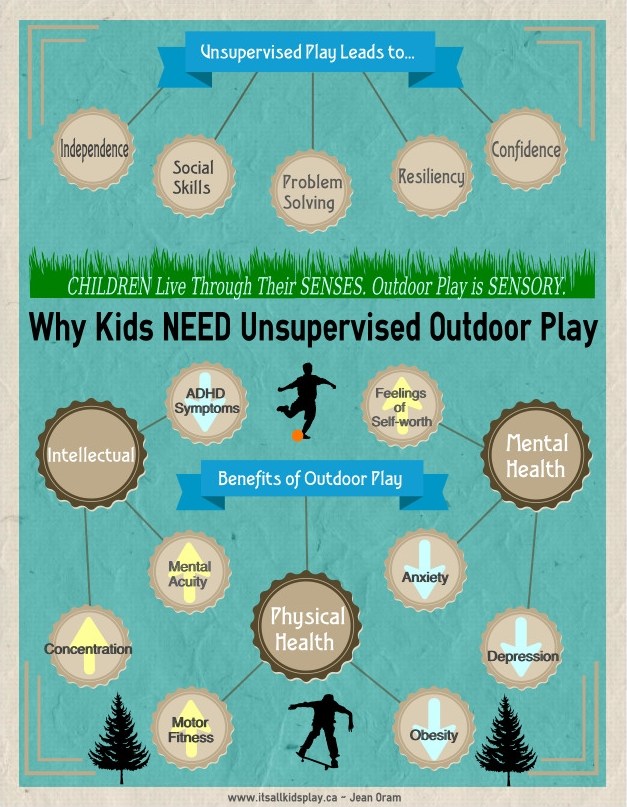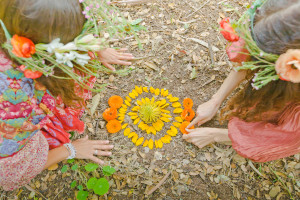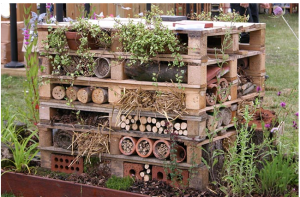All posts tagged outdoors
Unsupervised play in nature – Leave them alone!
Why have kids play and explore in nature? Because they already know what to do there – not instructions required. Kids are hard wired to know how to play outside, it is only we adults who interrupt their potential while they are explore. We do this out of our own fears but what if we allow these young explores to take over and investigate all on their own? Just think of what they might come up with. Beyond playing out in a natural environment what if you are interested in building a playground in the back yard for the kids? consider building one out of natural materials. You can keep it simple and put up a few tree stumps to offer space for imaginative play.

You could create structures that are more complex and offer a fort like set ups so kids feel like they are in their own land and are able to invent new games with new rules. They can build characters and use their imaginations to create whole new worlds.

Mix nature with richer character development and storytelling by creating an outdoor structure that is a puppet theater combined with a beverage stand or Lucy from Peanut’s Advise stall. Let kids decide how they want to incorporate nature into the story they tell and how they see the world.

Next time you think “should I let the kids play an hour more on their tech or should I take them to a nearby playground?” consider how healthy it is for kids to have unsupervised, creative outdoor play. Leave them alone because they know what to do out there, just like you did when you where a kid.
SUMMER SOLSTICE
Celebrating Summer Solstice is a great way to connect kids with nature as Solstice highlights the transitions in nature. Crops are starting to grow, daylight is at its peak and the weather in most locations is inviting.
Ideas to celebrate the MidSummer Solstice:
FEAST – Eat local and seasonal foods -Â Visit a farmers market
FLOWERS – Pick some fresh outside, visit a florist, Research legends about flowers
FIRE – Have a Bonfire -Â According to old pagan traditions, the bonfires would to scare off witches and other evil creatures during the Solstice.
SCIENCE – Learn more about Phenology - the study of cyclic and seasonal natural phenomena, especially in relation to climate and plant and animal life.
ART and CRAFT – Make Solstice Slime, Fire Flies in a Jar, Hair flower wreath, A Sun Wheel
June Solstice: Longest and Shortest Day of the Year
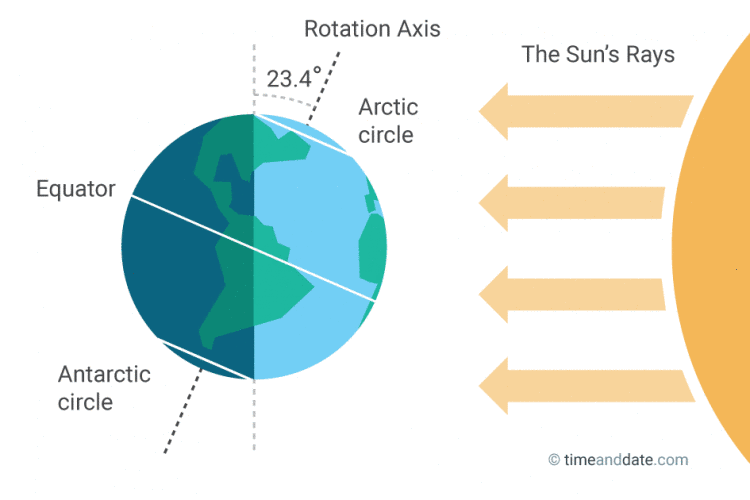
Solstice is Monday, June 20, 2016Â
A solstice happens when the sun’s zenith is at its furthest point from the equator. On the June solstice, it reaches its northernmost point and the Earth’s North Pole tilts directly towards the sun, at about 23.4 degrees. It’s also known as the northern solstice because it occurs when the sun is directly over the Tropic of Cancer in the Northern Hemisphere.
Meaning of Solstice
‘Solstice’ (Latin: ‘solstitium’) means ‘sun-stopping’. The point on the horizon where the sun appears to rise and set, stops and reverses direction after this day. On the solstice, the sun does not rise precisely in the east, but rises to the north of east and sets to the north of west, meaning it’s visible in the sky for a longer period of time.
Although the June solstice marks the first day of astronomical summer, it’s more common to use meteorological definitions of seasons, making the solstice midsummer.
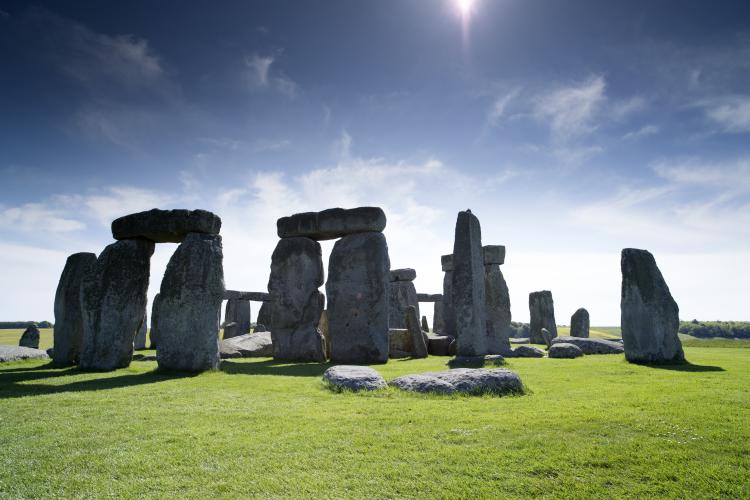
Stonehenge in England. ©bigstockphoto.com/dubassy
Every summer we go camping and spend days, weeks and even months outside playing in nature. And every summer my girls and their friends build outdoor habitats for the magical, mysterious creatures known as fairies. They will spend hours find items in nature that can serve as ‘beds’, ‘tables’ and ‘food’.

We encourage magic and mystery with the kids while they are in their natural surroundings. Imaginative play through constructing outdoor fairy houses from natural materials such as bark, sticks, stones, flowers, grasses, acorns and pine cones; along with small pieces of trash they find around the camp site like bottle caps, broken sunglasses, pieces of plastic. We use this collection time to have conversations with our mini architects to talk about preserving nature and not littering. We talk about how harmful it is to birds and water life when people don’t properly dispose of their garbage.

When building a fairy house think about all of the possibilities: such as creating a pebble path, making a fence out of sticks, a walnut-shell bathtub, leaf hammock, a bark bed or a stone table.
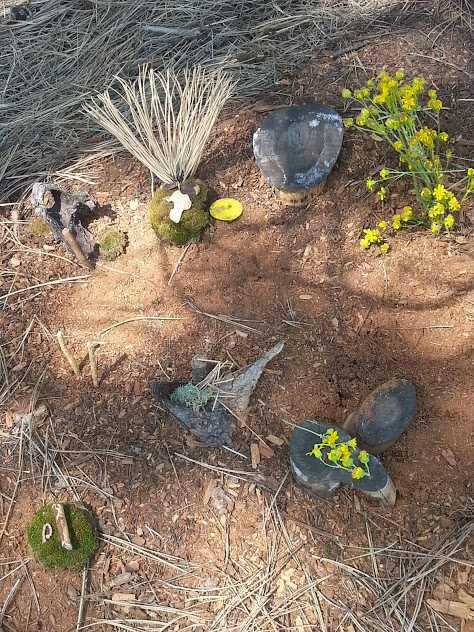
You can do this in your own back yard, at a playground or even in a container filled with dirt on a balcony of an apartment. You need only to get outside, take a walk, carry a bag or a bucket and collect things. Bring back the found goodies to the place you will construct and begin the process to create a welcoming home for fairies.
Want more ideas? Check out these books – they are some of our favorites:
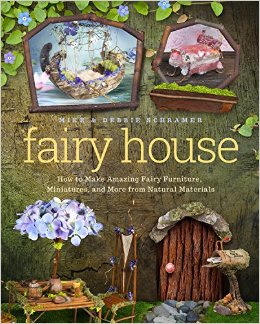
Fairy House: How to Make Amazing Fairy Furniture, Miniatures, and More from Natural Materials
Today, June 4, 2016 is American Hiking Society’s National Trails Day®
Get out to a nearby trail, wherever you are, and get a hike in this weekend. National Trails Day events will take place in every state across the country and will include hikes, biking and horseback rides, paddling trips, birdwatching, geocaching, gear demonstrations, stewardship projects and more. If you are interested in leading or organizing an event, click on the host materials tab to the left for host guides and prep materials.
We are looking at temps of 115 degrees today so that means heading north where is is easily 25 to 30 degrees cooler. No Excuses!
Getting kids outside and teaching them about insects is an important part of childhood. Encourage kids to not be afraid of bugs. Exploring safe creatures such as the Pill Bug or Rollie Pollie‘s as most kids call them is a great way to start young explorers off with insects. Kids can learn about the stages of a bugs life from egg to adult. They can also do a bit of research at their local library after a day of outdoor play and learn that Pill bugs are actually not insects, they are crustaceans. They are related to shrimp and crayfish, breathe with gills, and need humidity or moisture to survive.

With this knowledge they could build a Rollie Pollie habitat to study and observe these creatures.
Share nature with kids while they are young and you will create, in them, a life long love of the outdoors. This is important to cultivate future scientists, conservators and explorers along with naturalists and artists inspired by nature.
Insect habitats teach kids so many life lessons. Ants demonstrate the importance of working together. Praying mantids teach children about the food chain. Butterflies exhibit the beauty of metamorphosis bot to mention lessons in biomimicry. Bugs and insects make ideal pets for children who cannot own larger domesticated animals due to allergies, housing restrictions, or family finances. There are many prefabricated habitats available in the marketplace, but parents and children can also build their own. Check out this bug mansion:
